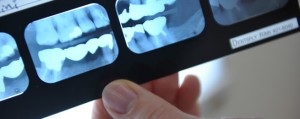In this blog post, Abhiraj Thakur, a 1st-year student of NALSAR University of Law, Hyderabad, writes about the scenario of oral healthcare in India concerning dental insurance. This blog post explores the how and why concept of dental insurance that is absent in India and looks at some effective oral healthcare models from which we can learn.
The human body is no doubt one of the finest creations of nature. It being a complex system of elements helps us to perform a broad range of activities and make human beings the most successful species on the planet. This system thus seeks our attention towards its constant maintenance for to function effectively. One of the components of this system is our teeth. There’s no need to highlight the importance of teeth for us. Many of us must have had the experience of that pain due to dental problems; it sends shivers to our spine.
Today the market has filled all sorts of cakes, chocolates, pastries, donuts, shakes and what not and these items feature of the top priority list of children and many times for adults as well. As a result, dental problems have become as common as many other diseases today. Our visits to a dentist have become much more frequent today. Such as we have ‘health insurance plans’ that cover the expenses of our medical treatments after accidents as well as regular health checkups, having a ‘dental insurance’ that covers both seems to be a very good idea.
Benefits of a Dental Insurance
 Before coming to context of India, let’s have a cursory look on some of the major advantages of a Dental Insurance Plan:
Before coming to context of India, let’s have a cursory look on some of the major advantages of a Dental Insurance Plan:
- Cost Effective: Data from various resources indicate that dental insurance plans prevalent all over the world today are comparatively cheaper to health insurance schemes, and so a large section of the population can easily afford it. The greatest example is of USA where on an average a health insurance plan costs $90,000 a year whereas a dental insurance plan costs $14,000.
- Whole scale Coverage: Like a Health insurance plan, a Dental insurance plan covers not only accidental dental treatments but also the expenses of regular dental check-ups and treatments such as root canal, etc. that are performed in the ordinary course of life and not due to damage from accidents. Thus, the benefits arising from a dental insurance can be reaped at the earliest as nowadays dental problems have become frequent among all age groups. In many cases, dental insurance covers as much as up to 75% of the treatment cost which can be helpful in preventing excessive loosening of our pockets.
Dental Insurance in India
The hard truth is that there is no such thing as ‘dental insurance’ in India. Treatment of teeth are covered under ‘health insurance’ by many companies and only the expenses of accidental tooth damage are taken care of. There are no reimburses provided for regular dental checkups or non-accidental treatments. Even these health insurance are provided by a limited number of companies in the country, so about care for teeth, the situation is bleak in India.
Reasons for Not Having ‘Dental Insurance in India.’
There cannot be one single reason for such a failure, but various reasons have operated over a course of time which has led to such a situation:
Policy Problems
Misconception of the concept of ‘Public Health Dentistry.’
In the field of dentistry, Public health dentistry has assumed a greater importance than anything else. Public health dentistry refers to the practice of providing affordable dental health services to the general population. In India also such a scheme was planned to be enacted under the oral health care. The greatest problem in this regard is that while most of the European and North American countries have well-defined oral health care scheme, India lacks it. There was no plan made for public health dentistry under the first oral health policy that was drafted way back in 1985. The provision of organizing ‘dental camps’ throughout the nation was the most remarkable feature of this policy. However, the practice has from the last three decades suffered from gross mishandling and led to a concoction of the term public health dentistry. Even today most of these camps are organized under poor conditions and in most camps adequate treatment is not provided to the patients, in fact, they are subsequently referred to private hospitals where they are asked to pay hefty fees and as a result, most of them prefer not to undergo any treatment.
Implementation Constraints
Internal Corruption happened in dental healthcare industry when government doctors catered with the responsibility of treatment of dental patients in dental camps deliberately do not provide them treatment. They refer them to private hospitals; they do this on charging illicit amount of money. As a result, it has contributed to the failure of the policy.
Structural Problems
Non-effective ‘Dental Plan’: Lack of Uniformity
The countries where the dental insurance is in vogue have effective dental plans for it. The 1985 oral health policy recommended for dental insurance but the same was covered under the ‘health schemes’ and not separately. The policy further was devoid of any guidelines to the private companies for the implementation of dental health schemes. As a result, it became totally discretionary for the companies to implement such a policy. Even today there is no uniformity in providing dental plans among the companies. Nations like UK and USA have dental policies that lay down a reasonable set of common features which the employers need to follow in order while providing dental plans to the employees.
Few of the well-recognized dental plans prevalent in the world are:
- PPO Model: It is referred to as ‘Preferred Provider Organization’ plans. Under this scheme to provide cost-effective dental insurance, the company providing the plan to employee contracts a specific dentist which over a period provides services to the employees at low-cost. These category of dental plans are helpful for regular checkups of gums and tooth and are cost-effective in long run.
- DHMO Model: It is referred as ‘Dental Health Managed Institution’ Models. Under this scheme, the insurance provider contracts with a vast number of dental organizations so as to provide cheap dental treatment. It covers costly dental treatments such as dental surgery etc.
- Indemnity based Dental Insurance: Under this, the person insured is allowed to see any doctor for treatment provided the doctor accepts the terms of the insurance of the company. These are usually employed in cases of preventive measures to prevent tooth decay.
 None of these models are currently at work in India, which is the biggest cause of no dental insurance in the country. The lack of importance to the issue of oral health care by the government becomes quite evident from the formulation of healthcare policies for the public. An example is the lack of any policy for standardization of dental procedure in the country. The cost of same dental treatment in India varies significantly in different parts of the country; this also acts as an impediment in formulation dental insurance policies.
None of these models are currently at work in India, which is the biggest cause of no dental insurance in the country. The lack of importance to the issue of oral health care by the government becomes quite evident from the formulation of healthcare policies for the public. An example is the lack of any policy for standardization of dental procedure in the country. The cost of same dental treatment in India varies significantly in different parts of the country; this also acts as an impediment in formulation dental insurance policies.
Failure of Dental Education on Substantive grounds
Under the current dental education scheme that is regulated by the Dental Council of India. A majority of dental schools in India charge fees which is higher than other MBBS colleges in the country, as a result becoming a dentist for a major chunk of interested individuals becomes a matter of earning and no particular regard is given to dental awareness in the country. Also, the recent measures of introducing private entities in the field of dental education by most of the states have not helped the cause. As a result of the economic burden on an individual dentist, the dental camps are utilized for personal rather than public benefits.
International Scenario: Lessons to be Learned
- No Dental Camps: In USA, both federal and state governments regularly take various measures such as of price ceiling so as to keep the perks of dental healthcare within the reach of low-income people, that form a significant proportion of a national population. The state-funded dental schools operate at efficient levels providing quality education at a reasonable price. Also, there is no mishandled concept of dental camps in the USA, in fact, the federal government works in collaboration with states to open a large number of dental clinics in rural areas.

- Community Dentistry: In UK, community dental services are a vital part of government health schemes, to make the greatest number of people avail the services of dental healthcare. Under the scheme, free of cost dental checkups are provided throughout the country by ‘community dentists’. These dentists voluntarily offer services and are paid under the scheme. The private stake is limited in dental education.
- Effective Inclusion: In Netherlands, the state has focussed on dental health care in a much more efficient manner than any other country in the world. Each and every Dutch citizen needs to be enrolled under the ‘National Dental Insurance Policy’ by the age of 19 years.
Thus, we see where India still lacks any comprehensive dental insurance policy; many countries of the world have effective dental plans in force. Suffering from both structural and policy problems the scenario of dental healthcare in our country does not look good. When it comes to healthcare of the citizens, it is the state that needs to take the initiative at the earliest.
 Serato DJ Crack 2025Serato DJ PRO Crack
Serato DJ Crack 2025Serato DJ PRO Crack











 Allow notifications
Allow notifications



As I gone through the article, I got to know that, how much India is behind the world in health/oral health sector.
Actually we need great policy for oral health.
Health insurance must include both types of oral treatments – Non Accidental and accidental.